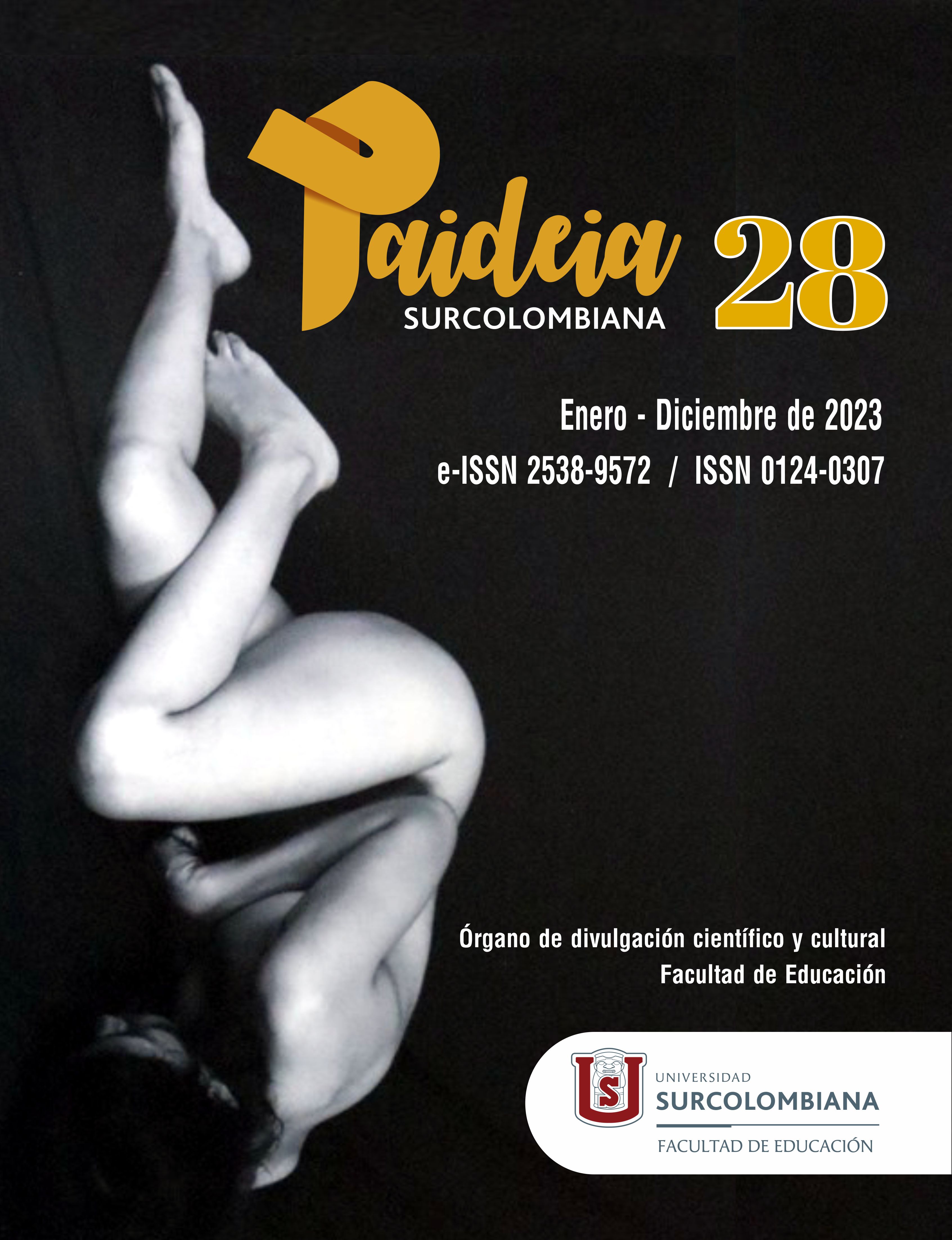Phenomenology of the educational inclusion of blind students in the teaching of Social Sciences in the city of Montería
##plugins.themes.bootstrap3.article.main##
Educational attention to students with disabilities has gone from being an object of study in the philosophical, pedagogical, and didactic field to a requirement of contemporary society expressed in legal regulations that claim the right to education without any discrimination. The article collects the results of the homonymous degree work, presented to qualify for the title of Master in Social Sciences, which constituted a retrospective analysis of the author’s own experience as a teacher of Social Sciences, in his attempt to include a student in condition of visual disability, in an institutional classroom reality. Based on the Phenomenology-Hermeneutics of Max Van Manen, a qualitative, critical, and phenomenological methodological design was built that allowed retrospective analysis and that, with the conversational interview as a research technique, made it possible to achieve the proposed objectives. The result was a phenomenological-hermeneutical document, which aspires to be the theoretical understanding of the lived experience and, at the same time, a contribution to the construction of an inclusive didactics of the Social Sciences, understood as a science of the construction of meaning.
Downloads
##plugins.themes.bootstrap3.article.details##
Correa. M. (2008). Imagen Táctil: una representación del mundo [Tesis Doctoral]. Universitat de Barcelona.
Decreto 1421 de 2017 [Ministerio de Educación Nacional]. Por el cual se reglamenta en el marco de la educación inclusiva la atención educativa a la población con discapacidad. 29 de agosto 2017.
Gibson, J. (1974). La percepción del mundo visual. Ediciones Infinito.
Gubern, R. (1987). La mirada opulenta. Exploración de la iconosfera contemporánea. Editorial Gustavo Gill.
Le Bretón, D. (2007). El Sabor del mundo. Una Antropología de los sentidos. Ediciones Nueva Visión.
Le Bretón, D. (2010). Cuerpo Sensible. Ediciones Metales Pesados.
Mejía Quintana, J. (2017). Violencia, Reconocimiento del Otro e Identidad. Una postura inspirada e Hannah Arendt y Enmanuel Levinas. Editorial Universidad del Rosario. https://doi.org/10.2307/j.ctt21kk11n
Merleau-Ponty, M. (1994). Fenomenología de la percepción. Planeta-Agostini.
Ministerio de Educación Nacional. (2017). Derechos Básicos de Aprendizaje para Ciencias Sociales. http://cedidguillermocanoisaza.edu.co/Archivos_Pdf/DBA/DBA_C.Sociales.pdf
Ocampo González, A. (2021). La inclusión como proyecto de conocimiento en resistencia. ESPACIO I+D, INNOVACIÓN MÁS DESARROLLO, 10(26), 31-71. https://doi. org/10.31644/IMASD.26.2021.a02
Ocampo González, A. (2020). Claves Heurísticas de la Educación Inclusiva. Laplage em Revista, 6(Especial), 71-87. https://doi.org/10.24115/S2446-622020206Especial948p.71-87
Ocampo González, A. (2020). En torno al verbo incluir: performatividades heurísticas de la educación inclusiva. Quaest.disput, 13(27), 18 - 54. https://www.researchgate.net/publication/349179648_En_torno_al_verbo_incluir_performatividades_heuristicas_de_la_educacion_inclusiva
Osorio, F. (1998). El Sentido y el Otro. Cinta de Moebio, (4). http://www.redalyc.org/articulo.oa?id=10100410
Parra Dussan, C. (2010). Educación inclusiva: un modelo de educación para todos. Revista ICEES, (8), 73 - 84. https://dialnet.unirioja.es/servlet/articulo?codigo=3777544
Peña, N. (2014). Otras visualidades: crear y enseñar fotografía desde la percepción invidente [Tesis Doctoral]. Universidad Complutense de Madrid.
Santiago, J. (2017). La construcción del conocimiento en el aula: la tarea esencial de la enseñanza geográfica. Anekumene, (13), 9-17. https://doi.org/10.17227/Anekumene.2017.num13.8374
Souto, M. (2011). La residencia: un espacio múltiple de formación. En R. Menghini y M. Negrin (Comp.), Prácticas y residencias en la formación de docentes (pp. 23-47). Jorge Baudino Ediciones.
Trepat, C., y Comes, P. (2006). El tiempo y el espacio en la didáctica de las ciencias sociales. GRAÓ.
Van Manen, M. (1998). El tacto en la enseñanza: el significado de la sensibilidad pedagógica. Paidós.
Van Manen, M. (2003). Investigación Educativa y Experiencia Vivida: ciencia humana para una pedagogía de la acción y la sensibilidad. Idea Educación.














